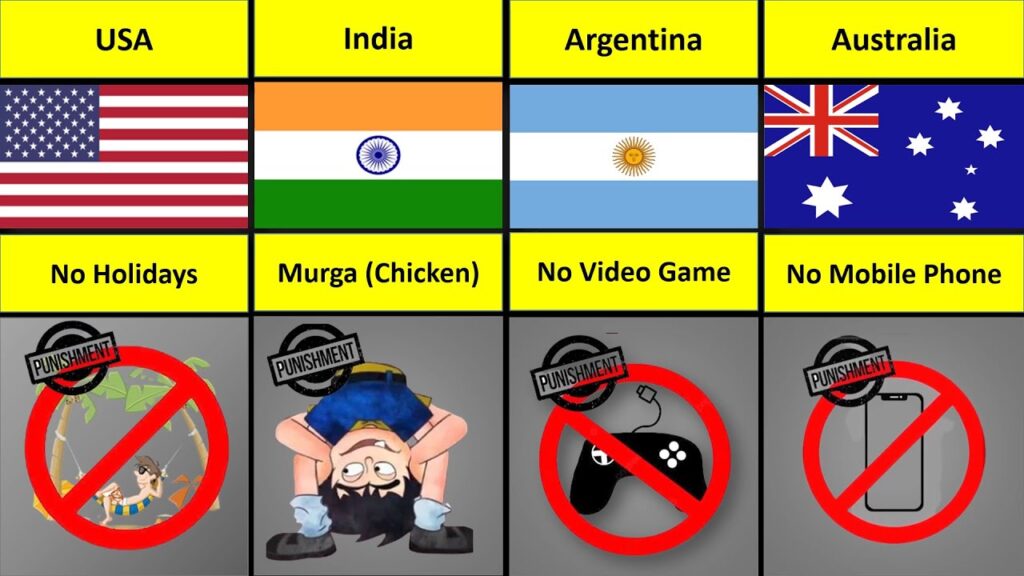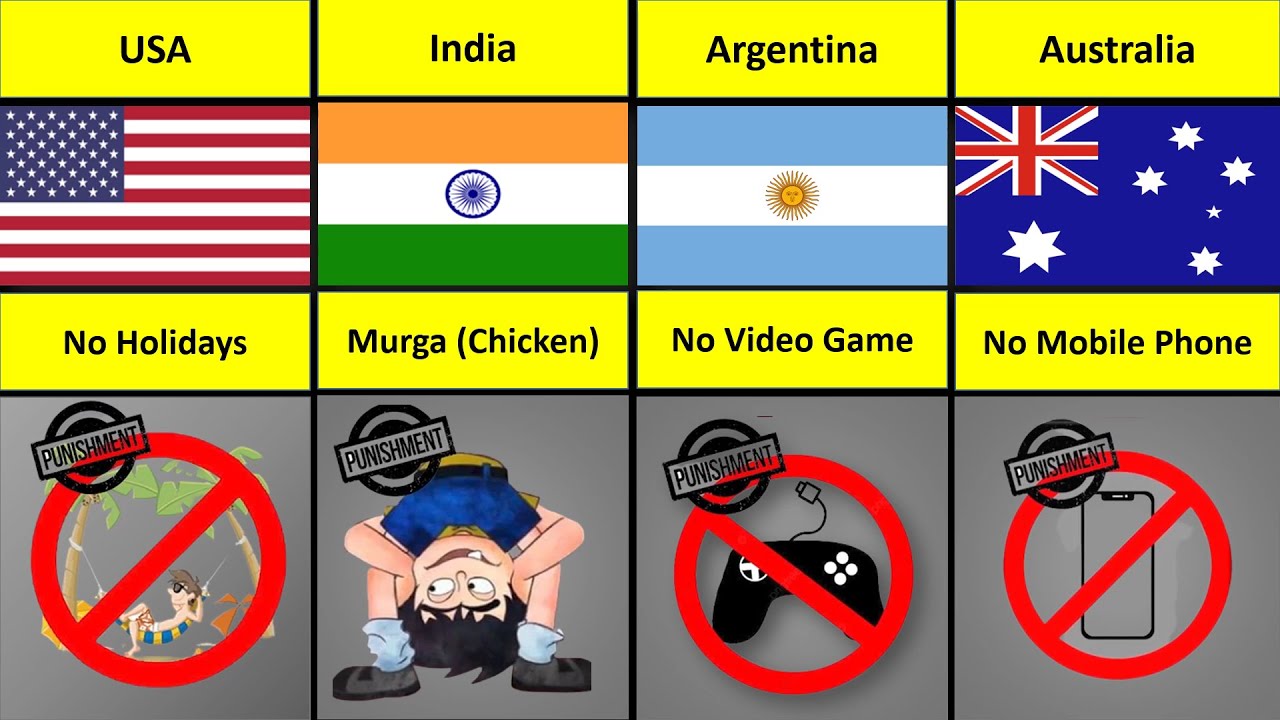
Understanding Mom Punishment: A Guide for Parents and Children
The topic of “mom punishment” is complex and often evokes strong emotions. It encompasses a wide range of disciplinary actions taken by mothers, from simple reprimands to more significant consequences. This article aims to provide a balanced and informative overview of mom punishment, exploring its various forms, psychological effects, and alternative approaches to child discipline. It is crucial to understand that effective parenting involves creating a safe and nurturing environment where children learn and grow, and that mom punishment, when used, should always be implemented with love, respect, and a focus on teaching valuable lessons.
What is Mom Punishment?
Mom punishment refers to any disciplinary action a mother takes in response to a child’s misbehavior. This can include:
- Verbal Reprimands: A simple scolding or expression of disappointment.
- Time-Outs: A brief period of isolation to allow the child to calm down and reflect on their actions.
- Loss of Privileges: Taking away a favorite toy, activity, or screen time.
- Chores: Assigning extra tasks as a consequence for misbehavior.
- Grounding: Restricting the child’s freedom to leave the house or participate in social activities.
- Physical Discipline: This includes spanking or other forms of physical punishment, which is highly controversial and often discouraged by experts.
It is important to note that the effectiveness and appropriateness of each type of mom punishment can vary depending on the child’s age, temperament, and the specific situation. The goal of mom punishment should always be to teach the child right from wrong, not to inflict pain or humiliation.
The Psychology Behind Mom Punishment
The psychological effects of mom punishment can be significant and long-lasting. Positive discipline focuses on teaching children self-control, responsibility, and empathy. However, harsh or inconsistent mom punishment can lead to:
- Anxiety and Fear: Children may become anxious and fearful of their mothers, leading to a strained relationship.
- Aggression: Studies have shown a correlation between physical punishment and increased aggression in children.
- Low Self-Esteem: Constant criticism and negative reinforcement can damage a child’s self-esteem and sense of worth.
- Behavioral Problems: Children may act out or engage in other problematic behaviors as a way to cope with the stress and emotional pain caused by harsh mom punishment.
- Resentment: Children may grow to resent their mothers, leading to rebellion and defiance.
It is crucial for mothers to be mindful of the potential psychological effects of their disciplinary actions and to strive for a balance between setting boundaries and providing a supportive and nurturing environment. Open communication and a strong parent-child relationship are key to minimizing the negative impacts of mom punishment.
Effective Alternatives to Harsh Mom Punishment
Fortunately, there are many effective alternatives to harsh mom punishment that can help children learn and grow without experiencing the negative psychological effects. These include:
- Positive Reinforcement: Rewarding good behavior with praise, encouragement, and small incentives can be more effective than punishing bad behavior.
- Natural Consequences: Allowing children to experience the natural consequences of their actions can be a powerful learning tool. For example, if a child refuses to wear a coat on a cold day, they will experience the discomfort of being cold.
- Logical Consequences: These are consequences that are directly related to the misbehavior. For example, if a child spills juice, they are responsible for cleaning it up.
- Time-In: Instead of sending a child to time-out, a time-in involves spending time with the child to help them calm down and talk about their feelings.
- Communication and Problem-Solving: Encouraging open communication and involving children in problem-solving can help them develop self-control and responsibility.
- Setting Clear Expectations: Clearly communicating expectations and rules can help prevent misbehavior in the first place.
By focusing on positive reinforcement, natural and logical consequences, and open communication, mothers can create a more positive and effective disciplinary approach that promotes healthy development and a strong parent-child relationship. [See also: Positive Parenting Techniques]
The Role of Fathers in Discipline
While this article focuses on mom punishment, it is important to acknowledge the role of fathers in child discipline. Ideally, both parents should work together to create a consistent and supportive disciplinary approach. When both parents are involved, children are more likely to understand and respect the rules. It is also important for parents to communicate with each other about their disciplinary strategies and to support each other’s decisions. A united front can help minimize confusion and ensure that children receive consistent messages about appropriate behavior. The absence of a father figure can significantly impact a child’s development and behavior, making the mother’s role even more critical.
Cultural Differences in Mom Punishment
It’s important to recognize that cultural norms and practices regarding mom punishment can vary significantly across different societies and communities. What may be considered acceptable in one culture could be viewed as inappropriate or even harmful in another. Factors such as socioeconomic status, religious beliefs, and traditional parenting styles can all influence the way mothers discipline their children. For example, in some cultures, physical punishment may be more common and accepted, while in others, verbal reprimands and loss of privileges may be preferred. It’s crucial for parents to be aware of these cultural differences and to adapt their disciplinary approach accordingly, while always prioritizing the child’s well-being and emotional health. Understanding these nuances can help avoid misunderstandings and promote more effective cross-cultural communication regarding child-rearing practices. [See also: Cross-Cultural Parenting Styles]
When Mom Punishment Becomes Abuse
It is essential to distinguish between appropriate mom punishment and child abuse. While discipline is a necessary part of parenting, abuse involves actions that cause physical, emotional, or psychological harm. Red flags that indicate mom punishment may have crossed the line into abuse include:
- Physical Injuries: Any disciplinary action that results in physical injuries, such as bruises, cuts, or broken bones, is considered abuse.
- Emotional Trauma: Constant belittling, humiliation, or threats can cause significant emotional trauma.
- Neglect: Failing to provide basic needs, such as food, shelter, and medical care, is a form of abuse.
- Sexual Abuse: Any sexual contact with a child is considered abuse.
If you suspect that a child is being abused, it is important to report it to the appropriate authorities. Child protective services agencies are available to investigate allegations of abuse and to provide support to families in need. Protecting children from harm is everyone’s responsibility.
Seeking Professional Help
If you are struggling with parenting challenges or are concerned about the effectiveness of your disciplinary approach, seeking professional help can be beneficial. Therapists, counselors, and parenting coaches can provide guidance and support, helping you develop more positive and effective parenting strategies. They can also help you address any underlying issues that may be contributing to your parenting difficulties. Remember, seeking help is a sign of strength, not weakness. It shows that you are committed to providing the best possible care for your children. Understanding the impact of mom punishment and seeking alternatives is a sign of responsible parenting. [See also: Finding a Parenting Coach]
The Long-Term Effects of Mom Punishment
The long-term effects of mom punishment can extend well into adulthood. Children who experience harsh or inconsistent mom punishment may struggle with:
- Mental Health Issues: Increased risk of anxiety, depression, and other mental health disorders.
- Relationship Problems: Difficulty forming and maintaining healthy relationships.
- Substance Abuse: Increased risk of substance abuse as a way to cope with emotional pain.
- Difficulty with Self-Regulation: Challenges with managing emotions and impulses.
By prioritizing positive discipline and creating a supportive and nurturing environment, mothers can help mitigate these long-term effects and promote healthy development and well-being. The goal is to raise resilient, responsible, and well-adjusted adults. The way mom punishment is administered plays a crucial role in shaping a child’s future.
Conclusion
Mom punishment is a complex issue with far-reaching consequences. While discipline is a necessary part of parenting, it is important to approach it with love, respect, and a focus on teaching valuable lessons. By understanding the potential psychological effects of mom punishment and exploring alternative approaches, mothers can create a more positive and effective disciplinary approach that promotes healthy development and a strong parent-child relationship. Remember, the goal is to raise children who are confident, responsible, and compassionate. The choices made regarding mom punishment can have a profound impact on a child’s life. The key is to find a balance between setting boundaries and providing a supportive and nurturing environment where children can thrive. Effective mom punishment should aim to guide and teach, not to harm or instill fear.

